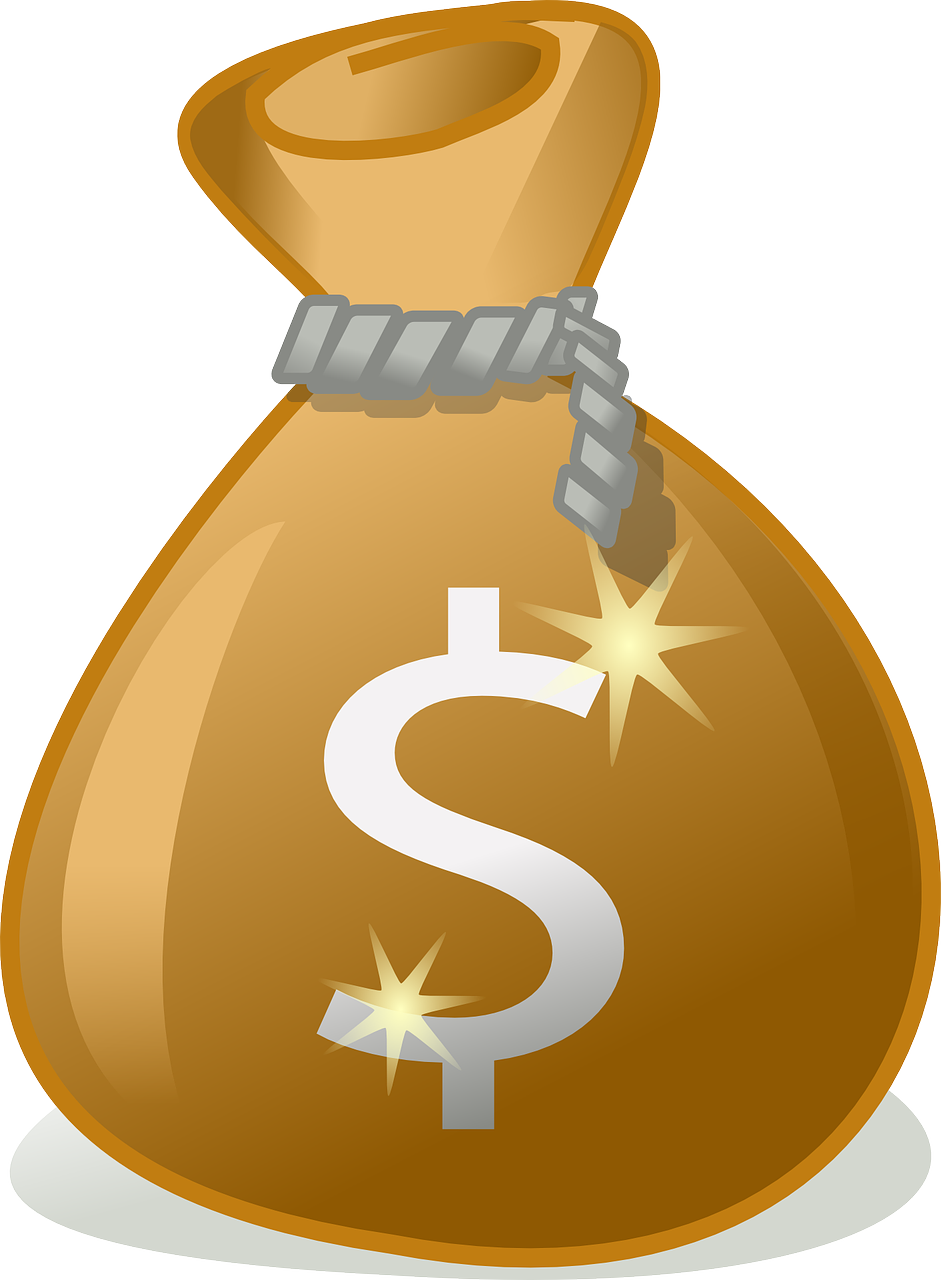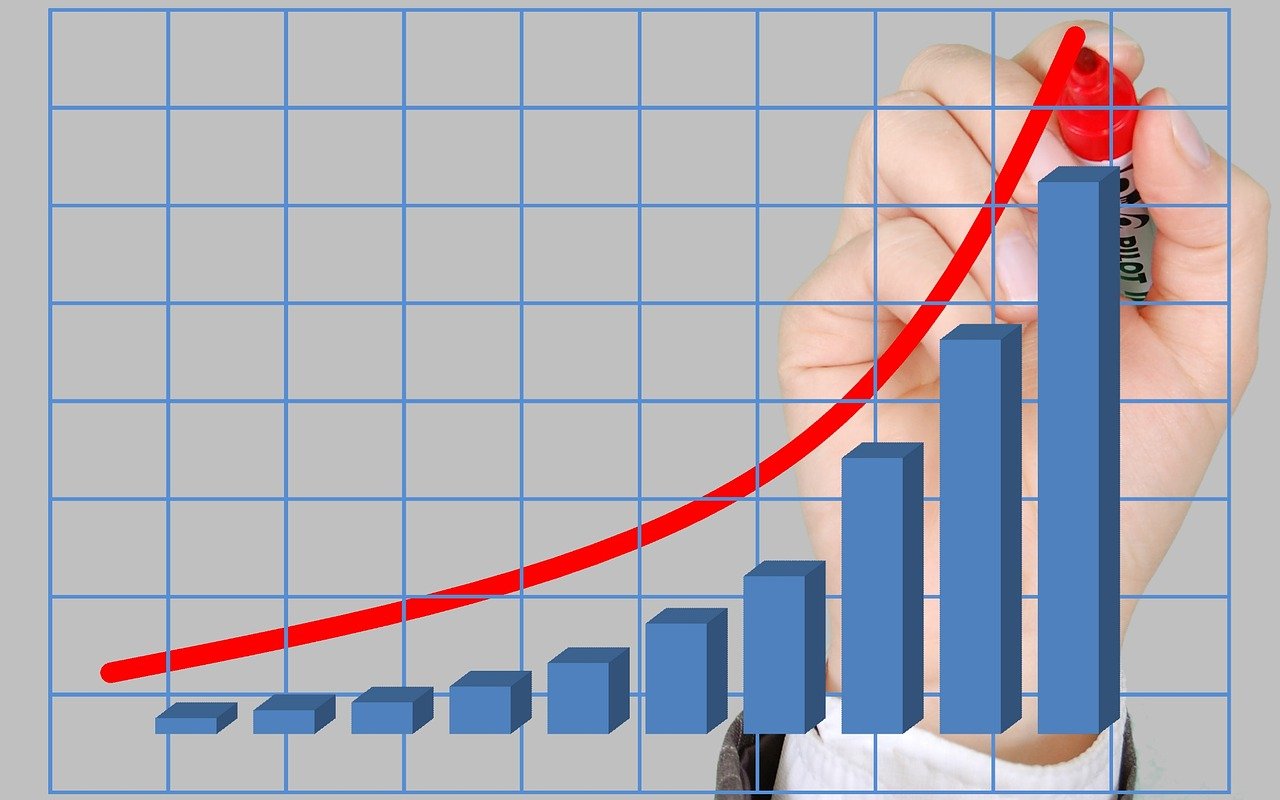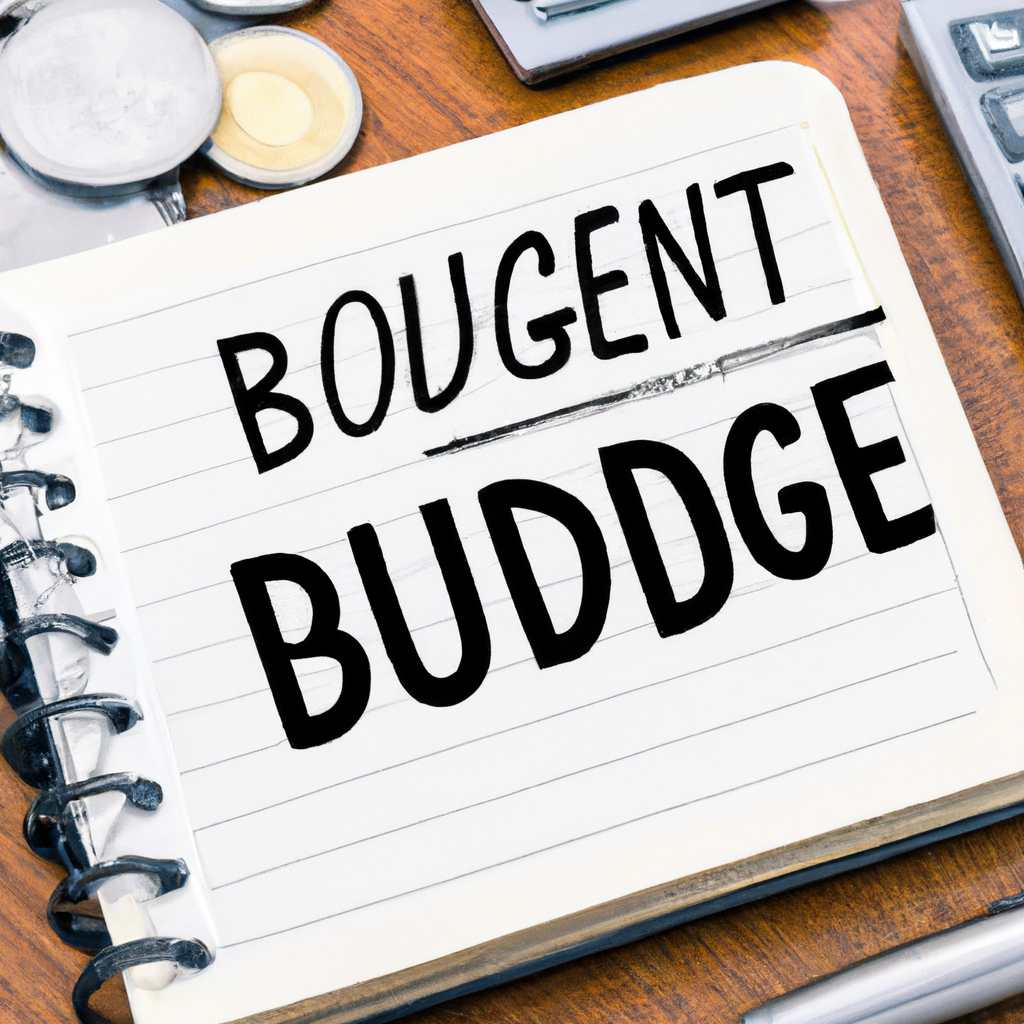Have you ever wondered what makes a budget effective? Whether you’re a student managing your personal finances or a business owner planning for the year ahead, understanding the essential components of a good budget is key to financial success. From setting clear goals to tracking your expenses, this article will explore the fundamental elements that make a budget reliable and practical. So, let’s dive in and discover the building blocks that can help you create a robust and effective budget.

1. Clear Goals and Objectives
When it comes to budgeting, having clear goals and objectives is crucial. This means knowing what you want to achieve with your finances, whether it’s paying off debt, saving for a down payment on a house, or simply ensuring that you’re able to cover your monthly expenses without stress. By clearly defining your financial goals, you will have a clear focus and direction for your budgeting efforts.
Setting SMART Goals
To make sure your goals are realistic and actionable, it’s important to follow the SMART framework. This stands for Specific, Measurable, Achievable, Relevant, and Time-bound. For example, instead of saying “I want to save money,” a SMART goal would be “I want to save $500 every month for the next six months to create an emergency fund.”
Prioritizing Your Goals
Not all goals are equally important, and it’s important to prioritize them accordingly. Identify your most pressing financial goals and allocate the majority of your budget towards those. This will help you stay focused and make progress towards your most important objectives.
2. Accurate and Realistic Income Projection
In order to create a sound budget, you need to have a clear understanding of your income. This includes not only your salary but also any additional sources of income such as freelance work or rental income. It’s important to accurately project your income, taking into account any fluctuations or irregularities. Overestimating your income could lead to unrealistic expectations, while underestimating it may result in financial difficulties.
Taking Into Account Deductions and Taxes
When projecting your income, it’s important to consider any deductions or taxes that will be taken out. This includes income tax, social security contributions, and any other mandatory deductions. By factoring in these expenses, you will have a more accurate picture of your available income.
Accounting for Variations
If your income varies from month to month or season to season, it’s important to take this into account when budgeting. You may need to create a range instead of a fixed income projection to accommodate for these variations. Additionally, it’s wise to base your budget on a conservative estimate of your income, especially if you’re self-employed or have an irregular income source.
3. Thorough Expense Analysis
To create an effective budget, it’s crucial to have a thorough understanding of your expenses. This includes both fixed expenses – such as rent or mortgage payments, utilities, and loan payments – as well as discretionary expenses like dining out and entertainment.
Tracking Your Expenses
To accurately analyze your expenses, start by tracking them for a few months. This can be done manually by keeping receipts and recording your expenses in a spreadsheet or by using budgeting apps that automatically categorize your spending.
Differentiating between Needs and Wants
Once you have a clear record of your expenses, it’s important to differentiate between needs and wants. Needs are essential expenses that you must pay to maintain a basic standard of living, while wants are non-essential expenses that you can live without. By categorizing your expenses into needs and wants, you will be able to identify areas where you can cut back if necessary.
Identifying Areas for Improvement
Analyze your expense categories to identify areas where you can reduce spending or find more cost-effective alternatives. This may include renegotiating your bills, finding cheaper alternatives for certain products or services, or eliminating unnecessary expenses altogether. Over time, these small changes can add up to significant savings.
4. Effective Cost Control Measures
In order to stick to your budget and achieve your financial goals, it’s important to implement effective cost control measures. This means being conscious of your spending habits and making conscious choices to prioritize your financial well-being.
Creating a Spending Plan
A spending plan is a detailed breakdown of how you will allocate your income to meet your expenses and financial goals. It helps you make intentional decisions regarding your spending and ensures that you have enough funds allocated for your priorities. By creating a spending plan, you can avoid impulsive purchases and stay on track with your budget.
Practicing Mindful Spending
Mindful spending is the practice of being fully aware of your purchases and evaluating whether they align with your values and goals. Before making a purchase, ask yourself if it is necessary and if it supports your financial objectives. This mindfulness can help prevent unnecessary spending and impulse purchases.
Utilizing Cash Envelopes or Digital Budgeting Apps
To maintain control over your spending, consider using cash envelopes or digital budgeting apps. Cash envelopes involve allocating a specific amount of cash for different spending categories and using only that cash for each category. Digital budgeting apps provide similar functionalities, allowing you to allocate funds to various categories and track your spending in real-time. Both methods help to limit overspending and encourage accountability.

5. Adequate Emergency Fund
One important component of a good budget is ensuring that you have an adequate emergency fund. An emergency fund is a separate savings account that is set aside to cover unexpected expenses or financial emergencies. Having this safety net allows you to handle unforeseen circumstances without jeopardizing your overall financial stability.
Determining the Size of Your Emergency Fund
Financial experts recommend having at least three to six months’ worth of living expenses in your emergency fund. Calculate the total amount you need to cover your essential expenses, such as rent or mortgage payments, utilities, groceries, and transportation, for the recommended time period. It’s important to regularly review and adjust the size of your emergency fund based on changes in your income, family situation, or financial goals.
Automating Contributions
To ensure that you consistently contribute to your emergency fund, automate your savings. Set up automatic transfers from your checking account to your emergency fund on a regular basis, such as monthly or bi-weekly. By doing this, you remove the temptation to spend the money and make saving a priority.
Utilizing High-Yield Savings Accounts
Consider keeping your emergency fund in a high-yield savings account to maximize your savings through higher interest rates. These accounts typically offer better returns than traditional savings accounts and help your emergency fund grow over time.
6. Appropriate Savings Allocation
In addition to building an emergency fund, allocating a portion of your budget towards savings is essential for long-term financial stability and achieving your goals.
Setting Savings Targets
Determine how much you want to save each month and set specific savings targets. You may have different savings goals, such as saving for a vacation, a down payment on a house, or retirement. Break down these goals into smaller, manageable milestones, making it easier to track your progress and stay motivated.
Paying Yourself First
A useful strategy for savings allocation is to “pay yourself first.” Treat savings as a non-negotiable expense and allocate a portion of your income to your savings goals before paying other bills or expenses. This approach helps build savings consistently and ensures that you prioritize your financial future.
Exploring Different Savings Vehicles
There are various savings vehicles to consider, such as traditional savings accounts, certificates of deposit, or retirement accounts like an Individual Retirement Account (IRA) or a 401(k). Research different options to find the ones that align with your goals and offer favorable interest rates or tax benefits.

7. Flexibility for Adjustments
Life is full of unexpected changes, so it’s important to build flexibility into your budget. This allows you to adapt and adjust your financial plan as circumstances change.
Building in Contingency Funds
In addition to your emergency fund, consider allocating a small percentage of your budget to a contingency fund. This fund can be used to cover unforeseen expenses that may arise, such as car repairs or medical bills, that are not covered by your emergency fund.
Reviewing and Adjusting Your Budget Regularly
Your budget should be treated as a living document that evolves with your changing circumstances. Regularly review your budget and make adjustments as needed. This may involve revisiting your goals or reallocating funds to different expense categories based on changing priorities or income levels.
8. Regular Monitoring and Review
To ensure that your budget remains effective, it’s important to regularly monitor and review your financial progress.
Tracking Your Expenses and Income
Continue tracking your expenses and income to ensure that they align with your budget. Monitoring your spending habits will help you identify areas where you may be overspending or not allocating enough funds.
Analyzing Your Financial Progress
Regularly analyze your financial progress to determine if you are on track towards your goals. This can be done by reviewing your savings growth, debt reduction, and overall financial health. If you notice any deviations from your plan, take corrective action to get back on track.
Utilizing Budgeting Tools or Apps
There are numerous budgeting tools and apps available that can assist you in monitoring and reviewing your budget. These tools provide visual representations of your spending, savings, and financial progress, making it easier to identify areas for improvement.

9. Transparency and Accountability
Transparency and accountability are key components of a successful budgeting strategy. By being transparent with yourself and your financial partner (if applicable), you can foster a sense of shared responsibility and ensure that everyone is working towards the same financial goals.
Communicating and Collaborating
If you have a financial partner, whether it’s a spouse, a roommate, or a family member, it’s important to communicate openly about your financial goals, budget, and progress. Regularly discuss your budget, make joint decisions, and hold each other accountable to stay on track.
Sharing Financial Information
Transparently sharing financial information can help identify potential areas for improvement or areas of concern. Provide access to your budgeting tools or regularly review your finances together to keep each other informed and engaged in the budgeting process.
Seeking Professional Help if Needed
If you find budgeting particularly challenging or need help in certain areas, consider seeking the assistance of a financial advisor or credit counselor. These professionals can provide guidance and support to help you improve your budgeting skills and achieve your financial goals.
10. Advanced Planning and Forecasting
To further enhance your budgeting strategy, consider incorporating advanced planning and forecasting techniques.
Anticipating Future Expenses
Think ahead and anticipate any future expenses that may require additional budgeting. This may include planning for major events such as weddings or home renovations, or anticipating changes in income or expenses due to career transitions or life milestones.
Incorporating Financial Forecasting
Financial forecasting involves using historical data and future projections to estimate your financial situation. By analyzing trends in your income and expenses, you can anticipate potential financial challenges or opportunities and adjust your budget accordingly.
Reviewing Long-Term Financial Goals
Regularly revisit your long-term financial goals and ensure that your budget is aligned with them. As your goals evolve over time, make any necessary adjustments to your budget to ensure that you are on track to achieve them.
In conclusion, a good budget includes clear goals and objectives, an accurate income projection, a thorough expense analysis, effective cost control measures, an adequate emergency fund, appropriate savings allocation, flexibility for adjustments, regular monitoring and review, transparency and accountability, and advanced planning and forecasting. By following these essential components, you can create a comprehensive budget that will help you achieve financial stability and reach your goals. Remember, budgeting is a dynamic process that requires regular attention and adjustments, so stay committed and adaptable to ensure long-term success.






